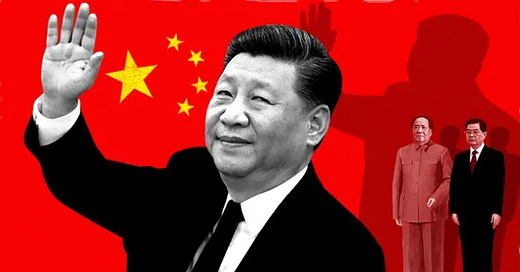The Research Paper That Got Me Fired from a Chinese Think Tank
It was a 2018 critique of Xi Jinping's decision to end presidential term limits
Stunning — at least to me, I was asked to write the paper by the think tank itself, the Beijing-based Knowfar Institute for Strategic and Defence Studies (KISDS), where I served as their inaugural visiting (non-resident) research fellow from 2015 to right after I turned this in. KISDS knew the decision was coming out and they wanted to weigh in — or at least let the guy living outside the country weigh in.
So I did.
It was, unsurprisingly, the last report I ever wrote for Knowfar.
It stands up pretty well to time, seeing as I wrote it five years ago.
I post it here … mostly because I think it’s pretty good and still worth reading.
So here it is, in full. Let me know what you think …
THE STRATEGIC RISKS OF CHINA’S ELIMINATION OF PRESIDENTIAL TERM LIMITS
By Thomas P.M. Barnett, PhD, Senior Research Fellow, Knowfar Institute
5 March 2018
This report examines the near and long-term strategic risks associated with the recently announced proposal by the Chinese government to submit legislation that would eliminate the national constitution’s limit on presidential and vice-presidential terms. Internal risks are identified to demonstrate why the outside world is already viewing this step as inherently dangerous for China’s long-term stability. External to China’s domestic dynamics, this report focuses on how this decision damages the nation’s development brand (China model) and derails the long-held Western belief in the persistently peaceful – and mutually beneficial – strategic trajectory of the People’s Republic since Chairman Mao’s passing in 1976. In many ways, history may well remember this troubling move as a decisive step in the slow-motion ramping-up of a second East-West cold war – this time centered on China and the United States.
Keep reading with a 7-day free trial
Subscribe to Thomas P.M. Barnett’s Global Throughlines to keep reading this post and get 7 days of free access to the full post archives.




